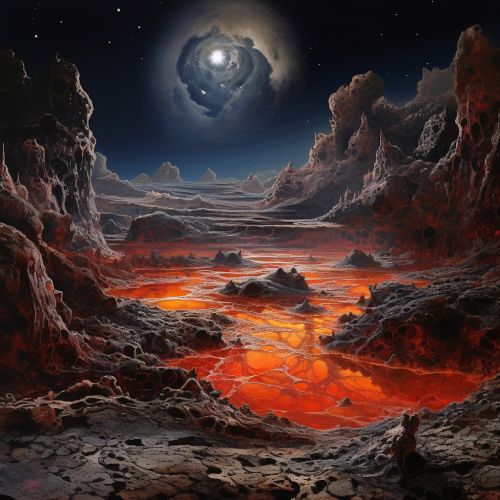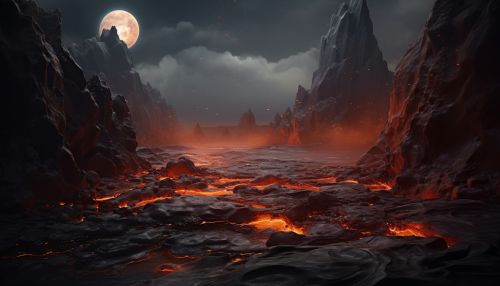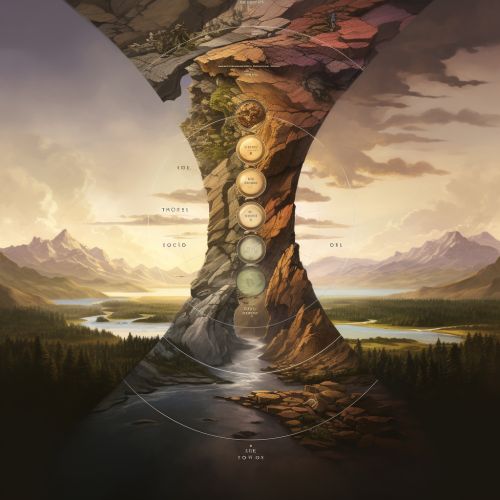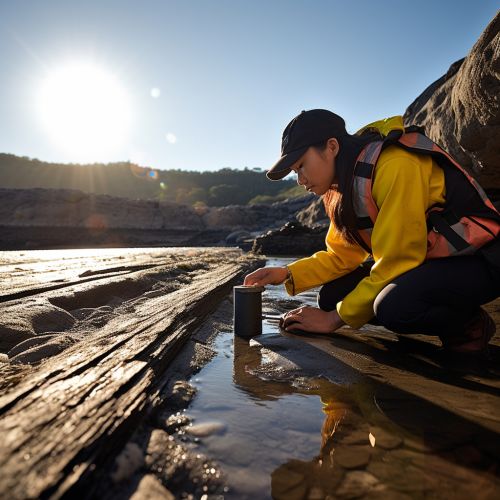The Role of Geology in Earths History Study
Introduction
Geology, the scientific study of the solid Earth, its rocks, and the processes by which they change, plays a crucial role in understanding the history of our planet. The Earth's geology has been a significant factor in shaping its history, from the formation of the first continents to the evolution of life and the development of human civilization. This article delves into the role of geology in Earth's history study, providing a comprehensive and detailed analysis of the subject.
Formation of the Earth
The Earth was formed around 4.54 billion years ago, according to radiometric age dating of meteorite material and Earth rocks, as well as through the use of planetary differentiation models. The geological processes that took place during the Earth's formation set the stage for the planet's history. The early Earth was a molten mass, but as it cooled, the first rocks and minerals began to form, creating the Earth's crust.


Plate Tectonics
One of the most significant geological processes that has shaped the Earth's history is plate tectonics. This theory explains the large-scale movements of the Earth's lithosphere, the rigid outer layer that includes the crust and the upper mantle. The Earth's lithosphere is broken into several large and small tectonic plates that float on the semi-fluid asthenosphere beneath. The movement of these plates has led to the formation and breakup of supercontinents, volcanic activity, earthquakes, and the creation of mountain ranges, all of which have had profound effects on the Earth's history and the evolution of life.
Geological Time Scale
The Geological Time Scale is a system of chronological dating that relates geological strata to time. It is used by geologists and other Earth scientists to describe the timing and relationships of events in Earth's history. The time scale is divided into eons, eras, periods, epochs, and ages, reflecting different geological stages and significant events in the Earth's history, such as mass extinctions, climate changes, and major evolutionary developments.


Fossils and the History of Life
Fossils, the preserved remains or traces of animals, plants, and other organisms from the remote past, provide a record of life on Earth. The study of fossils, known as paleontology, is an important aspect of geology. Fossils can tell us a great deal about the Earth's history, including the types of organisms that lived in different periods, their evolution over time, and the environments in which they lived. The fossil record has been crucial in developing the theory of evolution and understanding the history of life on Earth.
Climate Change and Geology
Geology also plays a crucial role in the study of climate change. Geological records provide evidence of past climate conditions and can help scientists understand the causes and effects of climate change. For example, the study of ice cores, sediment layers, and fossil records can provide information about past temperatures, precipitation levels, and the composition of the Earth's atmosphere.


Human Civilization and Geology
The Earth's geology has also had a profound impact on human civilization. The availability of natural resources, such as metals, coal, and oil, has shaped the development of human societies and economies. Geological hazards, such as earthquakes, volcanic eruptions, and landslides, have also influenced where and how humans live.
Conclusion
In conclusion, geology plays a vital role in the study of Earth's history. From the formation of the Earth and the movement of tectonic plates to the evolution of life and the impact of climate change, geology provides the tools and knowledge to understand our planet's past and predict its future.
